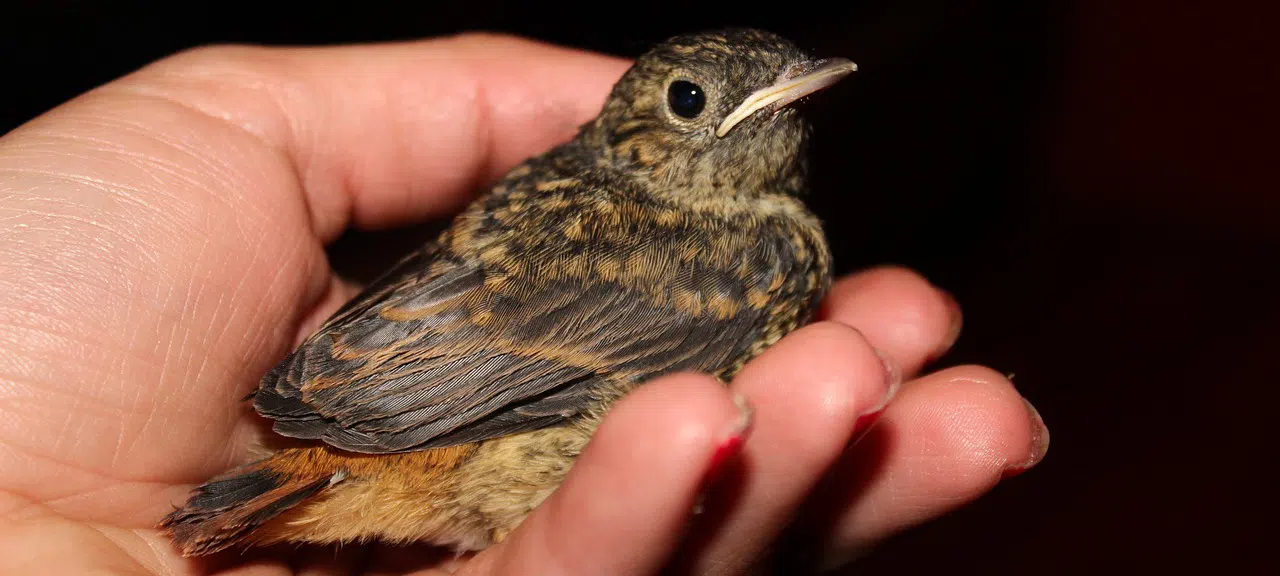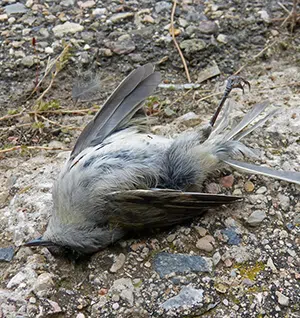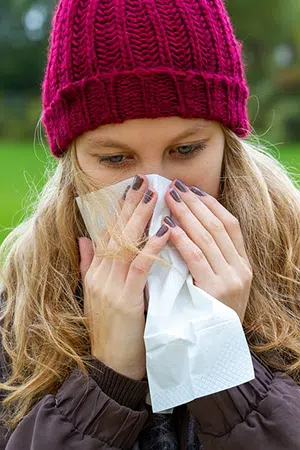The Middlesex-London Health Unit in Ontario is asking the public not to touch wild birds. This is in response to positive identification of several wild birds who succumbed to Avian Influenza in recent months.

Canada Geese and Avian Flu
Recently, Ontario has seen an increase in the identification of birds killed by a deadly strain of avian flu known as H5NX. Three Canadian Geese recently found deceased in London and Strathroy tested positive for the highly pathogenic strain. In general, wild aquatic birds (water fowl) like geese, ducks, swans, and storks are most likely to harbor the disease - Avian influenza A viruses occur naturally in wild aquatic birds.
How is Avian Influenza Transmitted?
Transmission from birds to humans is very rare, and usually only occurs after close contact with infected birds or highly contaminated environments such as poultry farms or live animal markets. However, it is important to avoid contact with wild birds, particularly deceased ones. This goes for your pets as well.,
Contact with Infected Birds
Other birds can become infected through direct contact with the saliva, nasal secretions, or feces of birds that carry the virus or are symptomatic with avian influenza. Unfortunately, this includes backyard poultry such as chickens, quail, ducks, and turkeys.
Transmission through Bird Droppings
 The trouble with the spread of Avian Flu is that infected birds can and will continue their normal activities and defecate in a number of locations on their flight path, potentially infecting several other birds (or, in rarer cases animals) along the way. And, an environment where many birds congregate can quickly become a hot bed for the spread of the virus.
The trouble with the spread of Avian Flu is that infected birds can and will continue their normal activities and defecate in a number of locations on their flight path, potentially infecting several other birds (or, in rarer cases animals) along the way. And, an environment where many birds congregate can quickly become a hot bed for the spread of the virus.
Airborne Transmission of Avian Flu
Although much less common, viral air particles can also be inhaled. This usually happens when feathers or dried bird droppings are stirred up and become airborne. Cleaning and disinfecting an area with large amounts of bird dropping should always be left to professional Bird and Wildlife Operators to ensure safety and prevent the spread of contaminants.
Contact with Contaminated Surfaces
Bird Flu an be transmitted through contact with surfaces contaminated with the virus from infected birds - think cleaning an eavestrough.
Contact with Contaminated Food and Water
Birds, other wildlife, and pets can become infected through contact with contaminated food and water supplies
Who is at Risk of contracting Bird Flu?
Agricultural workers, particularly poultry and cattle farm workers and operators face the highest risk of coming in contact with Bird Flu. To a lesser extent, landfill workers may also be exposed - even though there are strict regulations when it comes to the disposal of dead birds.
Signs of Avian Influenza
Birds infected with Avian Influenza
Most people's instinct is to help when we see a struggling animal. If you observe any of the following symptoms in a wild bird, please resist the urge to help or comfort:
- Lack of energy or movement - Lethargy
- Nervousness, tremors, or lack of coordination
- Swelling around the head, neck, and eyes
- Coughing, gasping for air, or sneezing
- Diarrhea
- Sudden death
Avian Flu in Pets
Domestic Pets, can become infected and suffer from Avian Influenza. Cats in particular can experience severe illness leading to eventual death from infection with H5N1. Dogs can also contract the virus, although they usually exhibit mild clinical signs and low mortality compared to cats. Here are some of the symptoms to look for:
- Lethargy and Weakness: A noticeable lack of energy or not doing normal activities.
- Fever: Elevated body temperature, which may make your pet seem more sluggish or uncomfortable.
- Vomiting or Diarrhea: Gastrointestinal upset that is unusual for your pet
- What to do if you find a Dead Bird
Avian Influenza or Bird Flu Symptoms in Humans
 If you think you may have been exposed to an infected bird or animal, monitor your health closely following the encounter. Keep in mind that not all patients necessarily exhibit all of these symptoms:
If you think you may have been exposed to an infected bird or animal, monitor your health closely following the encounter. Keep in mind that not all patients necessarily exhibit all of these symptoms:
- Fever (Temperature of 100°F [37.8°C] or greater) or feeling feverish/chills*
- Cough
- Sore throat
- Difficulty breathing/Shortness of breath
- Conjunctivitis (eye tearing, redness, irritation, or discharge from eye)
- Headaches
- Runny or stuffy nose
- Muscle or body aches
- Diarrhea
What Do I Do if I Find a Dead Bird?
If you encounter a dead waterfowl or other wild bird, you may call 1-866-673-4781 and report it to the Canadian Wildlife Health Cooperative who will oversee collection of the bird and testing. Do not handle the bird yourself and do not allow your dog or cat near it, or worse - consume it.
What Can I Do to Prevent Spreading of Avian Flu?
- DO NOT handle, touch, or discard of dead birds - see above
- Do not feed or water your pets outdoors
- Do not store your pet food outdoors
- Confine your poultry (like chickens) to an area with a roof to prevent birds flying overhead from defecating on or near your flock
- Wash your hands frequently with soap and water if you're around birds, wild animals, or livestock regularly
- Cook poultry and eggs to a minimum internal temperature of 165°F or 74°C to kill any viruses or bacteria
Why Do Avian Influenza Outbreaks happen during Winter?
The H1N1 (and related) viruses survive longer in cooler temperatures, in fact, weeks or even months. Heat and humidity kill the virus. That's why it is of utmost importance that you cook poultry, eggs, and meat completely. So, even IF the animal had been infected with Avian Influenza, the process of cooking will eliminate any risk to you and your family. During times of an outbreak it's also a good idea not to feed raw meat to your pets.
The importance of Bird Control during an Avian Influenza Outbreak
Many health risks are associated with pest birds. Particularly around any type of food processing or ventilation systems, reducing the number of birds, their feathers, and droppings is extremely important. Hawkeye Bird & Animal Control specializes in bird removal using a great number of methods aimed at long term success - one of the more unusual but most successful methods we've used for over 30 years is falconry. We also clean and disinfect areas after birds are gone. Contact Hawkeye today to discuss your bird control and removal needs. And, don't forget to apply for your permits!















